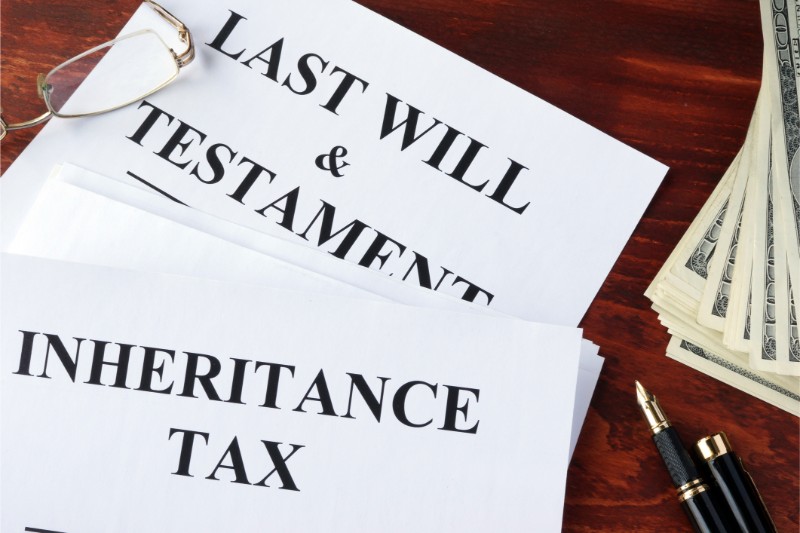
Handling real estate that passes through probate, particularly when there are liens or mortgages attached to the property, presents a significant challenge. Understanding how these encumbrances work and what options are available is crucial for executors, administrators, and heirs.
What is Probate?
Probate is the legal process of administering a deceased person’s estate. This involves:
- confirming the validity of their will (if present)
- Identifying and inventorying the deceased’s assets: This process can be complex, especially if the deceased had a wide range of assets. For real estate, this means a thorough search of property records to confirm ownership and identify any encumbrances like liens or mortgages. It also involves obtaining accurate valuations of all assets.
- Paying off debts and taxes: This step is critical, as outstanding debts and taxes can significantly impact the distribution of assets to beneficiaries. The executor or administrator must carefully review all claims against the estate, confirm their validity, and determine the order of payment according to state law.
- Distributing the remaining assets to the beneficiaries
Probate can be a complex and time-consuming process, and it’s essential to follow all legal requirements to ensure the estate is settled correctly.
Liens on Probate Real Estate
A lien is a legal claim against a property to secure a debt. If a debt is not paid, the lienholder has the right to foreclose on the property to satisfy the debt. Liens can be categorized as either voluntary or involuntary.
- Voluntary Liens: These are liens that the property owner agrees to, such as a mortgage.
- Involuntary Liens: These are liens placed on the property without the owner’s consent, such as:
- Tax Liens: Unpaid taxes, including federal, state, or local property taxes, can create a serious problem as these liens often take priority over other claims, including mortgages. For example, federal tax liens can arise from unpaid income taxes, while state tax liens can result from unpaid state income taxes or other state-level obligations. This means that in a sale, tax liens must be satisfied first.
- Mechanic’s Liens: If a contractor or supplier isn’t paid for work they have done on a property, they can file a mechanic’s lien. This lien can complicate the sale or transfer of the property during probate, as it must be resolved before clear title can be passed to a new owner.
- Judgment Liens: These result from a court judgment against the property owner.
Mortgages on Probate Real Estate
A mortgage is a specific type of voluntary lien where a lender provides funds to a borrower to purchase real estate. The property serves as collateral for the loan, meaning the lender can foreclose on the property if the borrower fails to make payments.
When a property owner dies, the mortgage does not disappear. It remains a debt of the estate, and the lender retains the right to foreclose if the loan is not paid.
Key Differences Between Liens and Mortgages in Probate
While both liens and mortgages represent financial claims against a property, there are some key differences in how they’re handled during probate:
- Nature of the Debt: A mortgage is specifically tied to the original purchase of the property, while a lien can arise from various unpaid debts.
- Voluntary vs. Involuntary: Mortgages are always voluntary, while liens can be either voluntary or involuntary.
- Priority: In Virginia, mortgages typically have priority over many other liens, meaning they are paid off first if a foreclosure is necessary. However, certain liens, such as those for unpaid taxes generally have priority even over mortgages in Virginia. The order of priority among various liens and mortgages is crucial in probate in Virginia, and understanding these nuances is essential to ensure that debts are settled correctly and the estate’s assets are protected.
Determining the Existence and Validity of Liens and Mortgages
The first step in dealing with liens and mortgages on probate real estate is to determine their existence and validity. This involves:
- Reviewing Property Records: The county recorder’s office or assessor’s office will have records of any recorded liens or mortgages on the property. A title search can also reveal any encumbrances.
- Examining the Deceased’s Financial Documents: Look for loan documents, contracts, and other records that may indicate outstanding debts secured by the property.
- Verifying the Validity of the Claims: Ensure that the liens and mortgages are valid and enforceable. This may involve reviewing legal documents and consulting with an attorney.
Options for Dealing with Liens and Mortgages
Once the existence and validity of liens and mortgages are established, the executor, administrator, or heirs have several options:
- Pay Off the Debt:
- If the estate has sufficient assets, the executor or administrator can use those funds to pay off the outstanding debts and remove the liens or satisfy the mortgage.
- This is often the most straightforward solution, as it clears the property of any encumbrances and allows it to be transferred to the beneficiaries.
- Sell the Property:
- The property can be sold to pay off the debts. The proceeds from the sale are used to satisfy the liens and mortgage, and any remaining balance goes to the beneficiaries.
- This is a common option when the estate lacks sufficient funds to pay off the debts directly.
- In a typical sale, the debts are settled through escrow.
- Refinance the Mortgage:
- The beneficiary who inherits the property may choose to refinance the existing mortgage in their own name.
- This allows them to keep the property while assuming responsibility for the debt.
- Refinancing typically requires the beneficiary to qualify for a new loan.
- Assume the Mortgage:
- In some cases, a beneficiary may be able to assume the existing mortgage, taking over the loan under the original terms.
- However, not all mortgages are assumable, and the beneficiary must usually meet the lender’s requirements.
- Allow Foreclosure:
- If the estate has no assets and the beneficiaries cannot afford to pay off the debts or refinance, the lender or lienholder may foreclose on the property.
- This should be considered a last resort, as it results in the loss of the property.
Order of Priority in Virginia
When a property in Virginia is sold to satisfy debts, the order in which the debts are paid is crucial. Generally, the order of priority in Virginia is:
- Senior Liens: These are typically mortgages and deeds of trust.
- Tax Liens: Unpaid real estate taxes in Virginia generally have priority over other liens, even mortgages.
- Federal Tax Liens: Federal tax liens can sometimes take priority over even a first mortgage.
- Junior Liens: These can include second mortgages, judgment liens, and mechanic’s liens.
It’s important to note that while Virginia state laws govern many of these priorities, federal law can sometimes supersede state law, as in the case of federal tax liens. Consulting with a legal professional is essential to determine the specific order of priority in a given situation.
Complications and Challenges
Dealing with liens and mortgages on probate real estate can present several challenges:
- Determining the Validity of Claims: It can be difficult to verify the accuracy and validity of old liens or debts.
- Conflicting Claims: There may be disputes between multiple lienholders or between lienholders and beneficiaries.
- Time Constraints: Probate can be a lengthy process, and delays in addressing liens or mortgages can lead to further complications or even foreclosure.
- Emotional Issues: Inheriting a property with debt can be emotionally stressful for beneficiaries who may have expected to receive the property free and clear.
The Importance of Legal Counsel
Given the complexities and potential pitfalls of dealing with liens and mortgages on probate real estate, it’s highly advisable to seek legal counsel. A qualified probate attorney can:
- Guide the executor or administrator through the probate process
- Help identify and verify liens and mortgages
- Negotiate with lenders and lienholders
- Advise on the best course of action
- Represent the estate’s interests in court if necessary
Handling real estate in probate with liens and mortgages requires careful attention to detail and a thorough understanding of the legal issues involved. By understanding the nature of these encumbrances, exploring the available options, and seeking professional guidance, executors, administrators, and beneficiaries can navigate this process successfully and ensure the proper distribution of the deceased’s assets.



